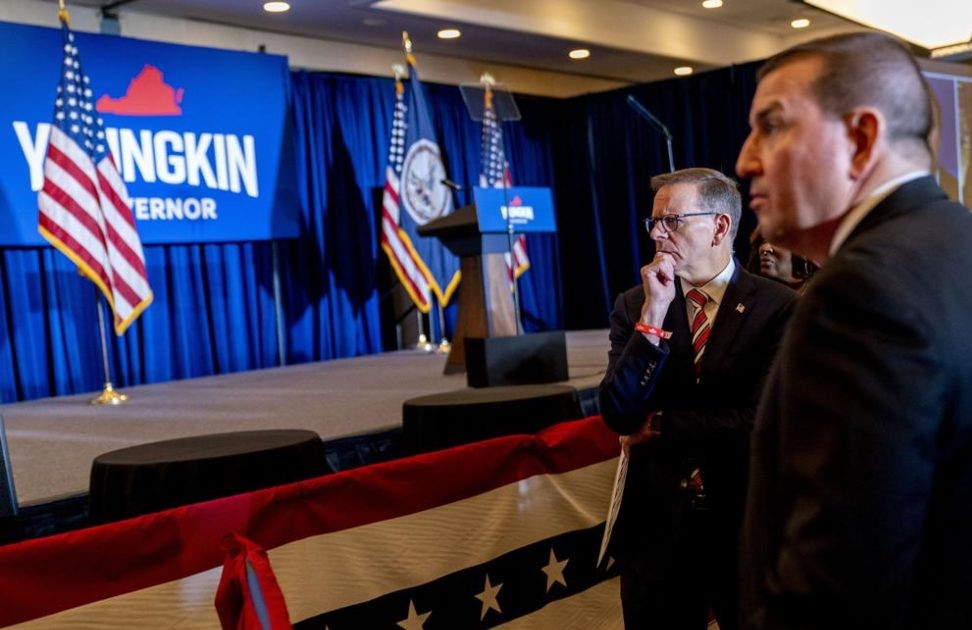On Tuesday, November 2, voters across the U.S. cast ballots for off-year governor elections, mayoral candidates, and policing measures. Here are the most pressing developments in key states.
Virginia
In a startling defeat for Democrats, Virginian voters elected a new governor. After weeks of polls showing a deadlock between incumbent Democrat Terry McAuliffe and Republican Glenn Youngkin, the GOP candidate prevailed, despite the state’s Democratic lean in recent decades and Biden’s electoral college win in 2020. The race featured high early voting numbers, and was anticipated as a referendum on Biden’s presidency.
For days leading up to the Virginia vote, Republicans had been making baseless accusations saying Democrats would steal the election — a familiar refrain because Donald Trump is still touting it. Legions of right-wing figureheads, from indicted and pardoned Trump strategist Steve Bannon to country singer John Rich, have spread the false claim and other conspiracy theories relating to election fraud.
Political journalist David Corn wrote that Youngkin strove to both appear reasonable and embrace the endorsement he received from Trump, saying “Youngkin has signaled his full support for the Trump conspiracy crowd: he has funneled his own personal cash into the campaigns of Big Lie advocates and 1/6 apologists.”
Major social issues and national culture wars significantly influenced the election. McAuliffe criticized Youngkin for opposing abortion and marriage equality and resisting COVID-19 vaccine mandates. But a Washington Post-Schar School poll showed education amounted to voters’ highest-ranked issue, as debates over “critical race theory” crackled across several counties — the theoretical framework is not taught in Virginia schools, but Youngkin still promised to ban it.
New Jersey
The only other race for governor took place in New Jersey, where current Democratic Gov. Phil Murphy is trying to fight off a challenge from Republican Jack Ciattarelli, a former state legislator. Democrats were hoping for a strong lead, but Wednesday morning showed a close race too early to call.
During his term, Murphy has succeeded in his campaign promise to expand government funding for widespread prekindergarten and free community college. He has also embraced the party’s left wing, having hosted Vermont independent Senator Bernie Sanders speak at an October campaign rally.
New York
Eric Leroy Adams, a former New York City police captain, was elected on Tuesday as New York’s 110th mayor, and the second Black mayor in the city’s history. Adams will take office on Jan. 1, facing numerous challenges as the city grapples with the consequences of the pandemic, economic recovery, and concerns of crime and quality of life. His victory indicates a more center-left Democratic leadership, which he promised will reflect the needs of working- and middle-class voters of color.
Elsewhere in the state, Republicans scored several victories at various levels of leadership. In Southern Brooklyn, a New York City Council seat that long favored Democrats flipped to Republican control; on Long Island, Democrats faced losses across the ballot; and during Wednesday’s count of the Buffalo mayor race, democratic socialist India Walton dragged behind the Republican-backed moderate Democrat Mayor Byron Brown.
Minneapolis
In Minneapolis, nearly a year and a half after a white police officer murdered George Floyd, voters in the city decided not to replace their police department with the proposed Department of Public Safety, which would have relied less on armed officers. The agency would have likely employed fewer police officers, alongside unarmed social workers, violence interrupters, traffic safety responders, and homeless outreach coordinators.
Minneapolis voters have also decided to reelect Democratic Mayor Jacob Frey, whom progressive organizers have pushed to take more action on policing — Frey opposed the Department of Public Safety measure and oversaw the city when Floyd was murdered.
Image by AP Photo / Andrew Harnik

